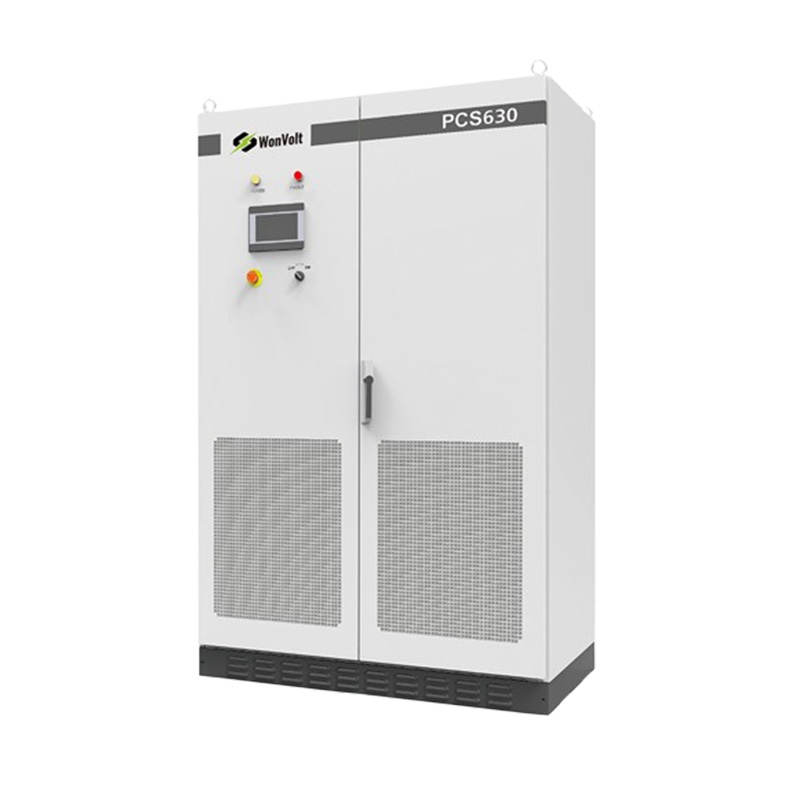When selecting a solar inverter for your home, several key factors should be considered to ensure optimal performance and efficiency.
Types of Solar Inverters
String Inverters and Their Applications
The most commonly used kind of solar inverters are string inverters. These are meant to connect several solar panels in a series to create a “string.” Such applications are suitable for sharper irradiations with full in-sunshine illumination and reduced shading; these inverters are great.
String inverters are used in medium to large-sized solar projects, such as industrial and commercial rooftops, where the DC electricity from the panels is converted to AC electricity in a centralized manner, making them a cost-effective solution.
Microinverters for Residential Use
Microinverters are smaller devices that are installed right on top of the solar panels. They work independently of each other for each panel, which gives them a higher efficiency than string inverters in conditions of partial shading or for panels set in different facing angles.
This is especially ideal for residential rooftops that are convoluted or have partial shading. Microinverters are especially ideal for homes with complicated rooftops or those subject to partial shading due to this capability.
Hybrid Inverters and Energy Storage Compatibility
Hybrid inverters are a combination of on-grid and off-grid systems. Besides, they easily integrate with battery storage systems, storing energy when demand is high and available for use when sunlight is low or when the grid goes down. This is on the rise thanks to many of these systems being flexible and capable of increasing this independence.
Key Performance Metrics
Efficiency Ratings and Their Impact on Energy Output
The efficiency of a solar inverter is one of the most critical factors in determining the energy output that your solar system will produce. Advanced inverters ensure high-efficiency conversion of DC into AC flow and will thus ensure you are reaping all of the power your panels help you generate. In residential applications, it is always suggested to go for an inverter with an efficiency rating above 95% to get the best performance of the inverter.
Load Capacity for Household Energy Needs
Load capacity is the maximum power. A well-chosen inverter with sufficient load can ensure that all household appliances run well without overloading the inverter. Offering an inverter load capacity that is sufficient for home appliances prevents appliances from overusing, but still functioning properly.
To select the right inverter for the home, check the max load and the possibility to increase the load should be there in the future, for a sustainable process to avoid underperformance and cost efficiency.
Compatibility with Solar Panel Systems
Matching Voltage and Current Specifications
It is important to ensure that the solar panels and inverter are compatible for a long-lasting and perfectly working solar system. The voltage and current ratings of both components must be matched well to avoid overheating or inefficiency.
Integration with Battery Storage Systems
Battery storage systems add important functionality to solar installations that allow you to store energy to use later. This is where hybrid inverters come in —they control grid-tied as well as battery charge and discharge operations.
WonVolt specializes in state-of-the-art solutions for solar energy, ranging from residential rooftops to industrial solar projects.
Advanced Features to Look For
Monitoring and Remote Management Capabilities
Monitoring and Remote management capabilities are important while choosing a solar Inverter. With these functionalities, you can monitor the performance of your system in real-time so that it is performing up to the mark. Having access to energy generation, consumption behaviours, and some potential pitfalls requires advanced monitoring systems. The availability of this data allows expedited troubleshooting, reducing downtime and improving efficiency.
The newer inverters available today often can connect to Wi-Fi or Ethernet, enabling easy integration with a mobile or web platform. This will allow you to remotely monitor your system, near or far from home. This is especially useful for residential applications where you may want to ensure steady performance.
Smart Grid Connectivity
Yet another major session of this training was all about smart grid connectivity, which adds another level of sophistication to how solar inverters can be utilized. Such inverters can then play a dynamic role in interaction with the grid by changing the energy flow to optimize the energy flow between the grid and the renewable energy source. This helps increase both more use of energy and the grid system by pumping in excess energy into the system while production hours are really productive.
In regions with dynamic electricity tariffs, smart grid-compatible inverters can help homeowners save significantly by prioritizing energy storage or usage during off-peak hours. This feature is especially advantageous for hybrid systems that integrate battery storage.
Durability and Warranty Considerations
Weather Resistance and Longevity
A solar inverter needs to be durable and should be used in the long run. Outdoor inverters should be able to endure harsh weather, extreme temperatures, humidity, and UV. Opt for a unit with a durable casing with an IP65 or a better rating to be safe from dust and water.
Longevity is equally important; high-quality components and advanced thermal management systems contribute to a longer operational lifespan.
Warranty Terms and Service Support
Warranty terms are among the most important factors to check while searching for solar inverters. An extensive warranty is an indication that the manufacturer believes in the quality of the product. A well-respected brand will have a warranty that lasts between 5 and 12 years, with a possible option to extend.
Additionally, assess the availability of service support in your region. Prompt technical assistance can minimize downtime during unexpected failures, ensuring uninterrupted energy supply for your home.
Recommendations for WonVolt Solar Inverters
Features of WonVolt String Inverters
Units designed for medium to large-scale applications are also great for residential use with strings of panels that get constant sunlight exposure, such as those placed on rooftops with a south orientation. Centralizing the DC to AC efficiency, these units offer solutions of up to 325 kW per unit in a scalable package. Its robust construction can withstand extreme weather conditions.
For homeowners seeking reliable performance without compromising on cost-effectiveness, these string inverters are an excellent choice. They integrate seamlessly with various panel configurations, optimizing energy output across diverse setups. WonVolt offers technical support for your needs.
Advantages of WonVolt Hybrid Inverters for Home Use
With their unique versatility and features like battery storage and smart grid integration technology, WonVolt’s inverters are one of the best types of inverters available today. These systems can be deployed in capacities rated as high as 100 kW/unit and used for either on-grid or off-grid applications, and suffice for both small residential installations and more significant installations.
They can save the surplus energy during the peak hours of energy generation, ensuring that there is no interruption in power supply during an outage or low sunlight hours. Furthermore, they offer straightforward remote monitoring, allowing homeowners full control of their energy systems.
Explore WonVolt’s innovative products designed to meet diverse energy requirements efficiently.
FAQs
Q1: Why is smart grid connectivity important to solar inverters?
A: It enables the grid to interact dynamically, optimizing energy transfer based on real demand and energy supply and enabling cost savings for the customer with time-dependent pricing during off-peak hours.
Q2: How can I make my solar inverter run for a longer time?
A: To fend off the elements, choose high IP-rated models along with correct installation and periodic maintenance inspections.
Q3: Are hybrid inverters good for homes without battery storage?
A: They are standalone and run independently but we also give options to add battery storage in the future if it is needed.


